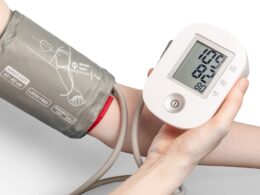If you’re a night owl who raids the fridge after dark, here’s some food for thought: late night eating may do more harm than just adding extra calories. Recent findings highlight that our bodies run on a 24-hour “clock”—the circadian rhythm—which gets thrown off when we snack after sundown. The main culprit? Melatonin, the so-called sleep hormone. But melatonin isn’t just about making us drowsy; it also interacts with metabolic processes, and eating when melatonin is high can spell trouble.
Melatonin: Friend or Foe After Dark?
Once the sun sets, our bodies naturally shift gears into rest mode. That’s when melatonin levels rise, signaling it’s time to wind down. If you’re reaching for snacks during this window, especially habitually, you might be setting yourself up for what scientists call a “metabolic mismatch.” That basically means your body’s internal clock and your eating schedule are out of sync, which can mess with everything from digestion to blood sugar regulation.
For most people, the occasional midnight snack won’t cause major issues. But experts warn that consistently eating late at night could interfere with the body’s ability to process food properly. Melatonin, instead of gently guiding you to sleep, might start working against you by impacting how your body handles glucose.
Genetic Risk: The MTNR1B Factor
Things get even trickier for folks with certain genetic profiles. People who carry MTNR1B gene variants are especially vulnerable. Studies show these individuals can experience steeper drops in insulin and have worse glucose tolerance when they eat late. In other words, their bodies struggle even more to manage blood sugar at night, raising the risk for metabolic problems down the road.
Healthcare professionals have long recommended light dinners and even intermittent fasting. But as one expert points out, it’s time to factor in circadian rhythms, too. Ongoing clinical trials are now exploring “Early Time Restricted Eating,” where people eat within an eight-hour window—say, from 6 a.m. to 4 p.m.—to align meal times with the body’s natural rhythms. The goal is to harness both the benefits of fasting and the advantages of eating in sync with our internal clock.
So, next time you’re tempted by a late-night snack, remember: your body’s clock—and perhaps even your genes—may pay the price.










